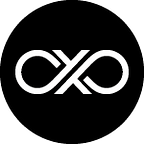When users are interested in the crypto world and want to use the available services, one of the most worrying aspects is how to store and manage assets. Unlike traditional apps, decentralized apps (dApps) do not have control over accounts, funds, and data on the user’s behalf, and require the users to control them.
For example, in the instance of scams or fraud, traditional banks may freeze an account, cancel relevant cards, and refund the lost funds to the user. This however requires a centralized control point that the traditional banks use to use these actions, and require much more information, consent, and permissions from the users than decentralized options would.
The biggest feature of a decentralized wallet is that it is not just a form of storing separate assets for each wallet app, but a method of representing an interface around accounts in the blockchain. With this, users can choose the wallets they prefer or use multiple wallets they would like.
Currently, popular blockchain wallets include Coinbase Wallet, Exodus, Ledger, and Metamask. These wallets can typically be classified as mobile wallets, browser extension wallets, desktop wallets, and more.
Stacks is also blockchain-based and requires a crypto wallet for asset storage and activity. With a Stacks wallet, users can access accounts, tokens, data, and interact with Stack-based apps. Because of this, options must be able to support the Stacks blockchain to be able to participate in the Stacks Ecosystem.
Current wallet options on the Stacks Blockchain include:
Hiro Wallet
- Supports: Desktop app or browser extension
- Features: Buy and Trade STX, Stacking and Pooling, Ledger integration
Hiro Wallet, which is one of the most popular wallets for Stacks, provides a desktop app and browser extension. It also supports Trezor, making it easier for users to access Stacks with their wallets. By providing stacking services directly and in a non-custodial fashion, it is a suitable wallet for a wide range of users.
D’CENT Wallet
- Supports: Desktop app and mobile app
- Features: Biometric options on Android & iOS, hardware support, support in Korean
D’CENT has developed a convenient and secure user experience by supporting biometrics and hardware wallets. Crypto assets other than Stacks are also available on D’CENT’s wallet, which gives the users more variety and choice in their crypto journey.
Xverse Wallet
- Supports: Mobile app
- Features: Connection to apps, stacking on app
Xverse is a non-custodial wallet, where the private key is encrypted and stored only on the device. Regular security audits are executed to enhance security for the users. Users can easily participate in stacking and receive Bitcoin reward directly in their wallets.
Cerebro
- Supports: Desktop and mobile app
- Features: Free and open-source, multi-currency, direct stacking, built-in exchange
Cerebro is fundamentally blockchain-friendly by being free and open-source. A Blockstack-based ID is required, so it is rather difficult for new users to access. It is a service that is concentrated on securing user convenience by supporting multi-currency built-in exchanges and other functions.
Boom Wallet
- Supports: Mobile app
- Features: Mint custom NFTs, reward generating NFTs, managing all Stacks assets
With the upgrade to Stacks 2.0, Boom Wallet aims to create NFT usability within the wallet, allowing users to manage their Stacks-based NFTs and even allowing them to transfer NFTs. Boom is focused on improving the NFT usability for Stacks users by allowing them to create NFTs with PNG, JPEG, and GIF image formats within Stacks.
